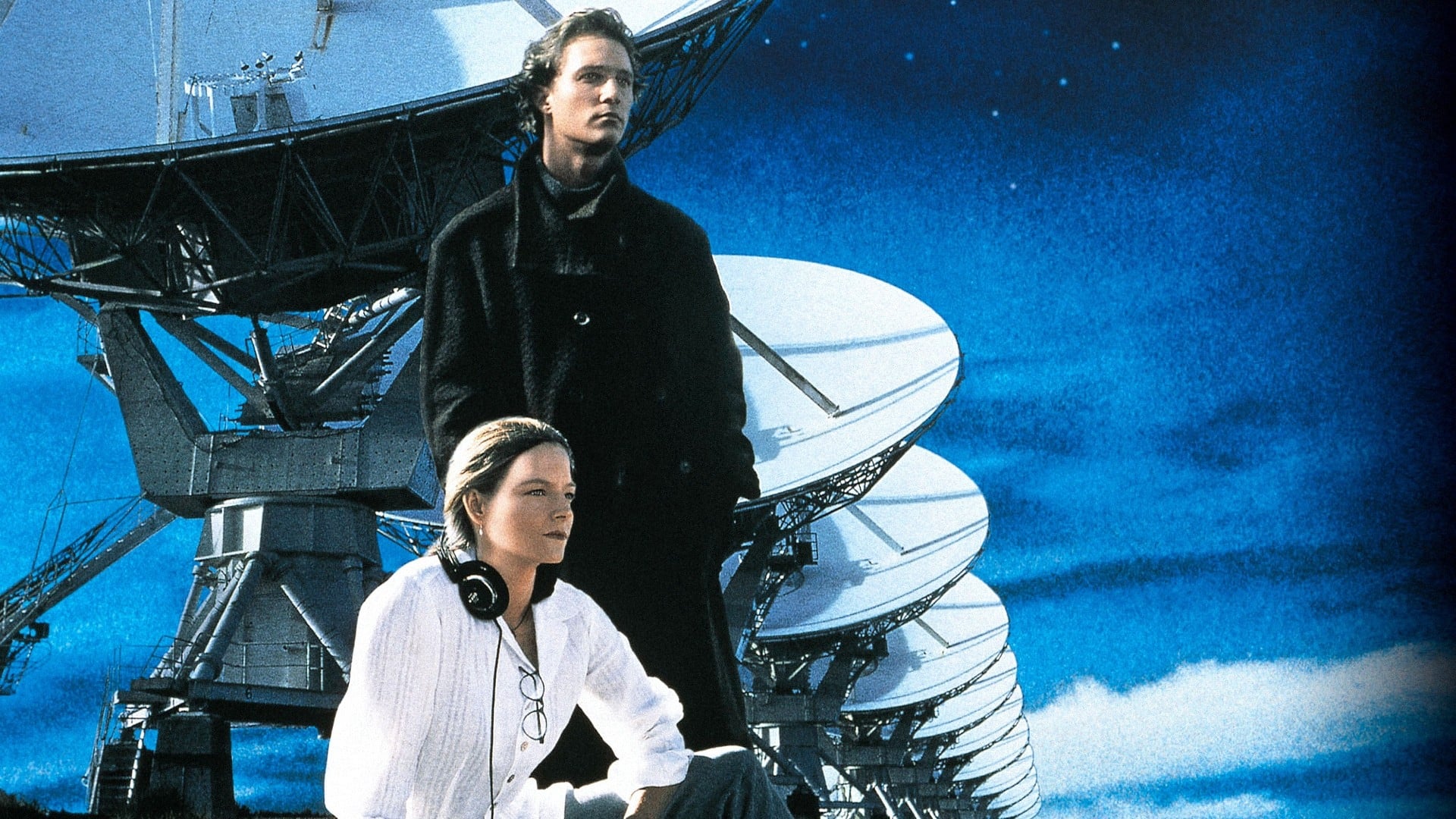**A film that gets more right than it gets wrong, in a friendly tribute to Carl Sagan.**
The theme of extraterrestrial life will always be a big deal for cinema, and is one of the most solid subjects within sci-fi. On the one hand, it has already given us a series of gems, but it also occasionally gives us films so bad that they are not worth the price of the plastic DVD. This film, for me, stays on positive ground: it gives us a solid story, intelligent enough to be believable, but it completely loses its way when it tries to introduce some action and shake things up a bit.
One of the most positive aspects of this film is the credible and understandable way in which it talks about complex scientific subjects and concepts. There are high doses of science and if we take into account that Carl Sagan was one of the consultants who worked here (he died in the middle of filming and the film is dedicated to his memory), we can easily understand why it seems so solid. This is what happens when you listen to competent people, who know and who truly study.
On a technical level, the film is reasonably within the standards of a sci-fi film from the late 90s with an already generous budget. However, despite some innovations such as the green screen and CGI effects, which were beginning to be implemented in the industry, not everything is really effective. Despite some high quality effects, the cinematography doesn't keep up, being excessively bland and uninteresting. I liked the focus on radio telescopes (we are more used to seeing optical telescopes, but listening to space is equally important) and it is incredible to see Arecibo again, one of the most cinematic and which very recently ceased to exist (which I greatly regret, by the way).
Jodie Foster is a highly competent actress who deserves to be congratulated for all her effort. She is charismatic and strong enough to guarantee the leading role and the quality of her work only decreases towards the end, when she had to interact with the green screen, something that was not usual for actors at this time. We can still see the quite satisfactory work of actors such as John Hurt, David Morse, Tom Skerritt or James Woods. None of them have material capable of giving them substantial time or impact, but they all did the most they could with what they were given. Despite the relevance given, probably justified by the wage received, it was sad to see Matthew McConaughey in such a dull work, devoid of any substantial value. It seems that he was just making his money and wasn't interested in the project.
The script has clearly positive points and others that, honestly, should have been eliminated. On the one hand, the scientific discussion and the theme of sending data through signals that can be captured by sound is highly relevant and looks good. I also liked seeing the difficulties that the main character experiences in obtaining financial and practical support for her research and overcoming the prejudices and lack of interest of her patrons. This is a picture of how much scientific research is currently going. From a certain point onwards, the film seeks to involve the Government and NASA, and things move towards a kind of bloated and histrionic action that is at odds with what had been done before. That was a mistake, but director Robert Zemeckis doesn't seem to learn from his mistakes, since it's not the first time it's happened in his films. Another error was the religious debate over alien life. This film did not call for this, the topic is left and should have been cut outright.



